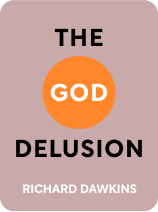

This article is an excerpt from the Shortform book guide to "The God Delusion" by Richard Dawkins. Shortform has the world's best summaries and analyses of books you should be reading.
Like this article? Sign up for a free trial here .
What is the god hypothesis? Is there any proof to support the idea that God is real?
In his book The God Delusion, Richard Dawkins refers to belief in God as a hypothesis like any other, known as the God hypothesis. He also asks what proves this theory, and why we are willing to overlook proof when it comes to God.
Read more about the god hypothesis and what it means.
Evaluating the God Hypothesis
Since it is logically impossible to prove a negative, one can never be certain that God isn’t real. But that does not mean that we can’t reasonably assess the likelihood of his existence.
Proponents of God’s existence say that we should simply accept their account of how the universe came to be and the divine forces that govern it on faith, without question or evaluation. But why should we not apply the same rigorous testing and analysis to the question of God’s existence (we’ll refer to it as the God Hypothesis for the remainder of the summary) that would to any other assertion of fact? After all, the God Hypothesis is merely a hypothesis like any other.
And, of course, not all hypotheses are created equal. We use likelihood and probability to evaluate the truth of the claims put forward by any hypothesis. For example, the Tooth Fairy Hypothesis is a hypothesis about how money appears under children’s pillows in the morning after they place a baby tooth under them at night. No one can ever definitively “prove” the non-existence of the Tooth Fairy. But because we have more rational and more likely explanations for the appearance of the money under the pillow (namely, that parents are placing it there while their children are asleep), we can confidently assign a very low probability to the Tooth Fairy Hypothesis.
Agnostics, who claim to be on the fence about the existence of God, wrongly conflate absolute proof with likelihood. Even learned people working in advanced scientific fields, like the late American paleontologist Stephen Jay Gould, hold to the agnostic position that science is simply incapable of rendering any judgment at all on the question of God’s existence.
But this claim rings hollow. The theistic account purports the existence of a God who consciously created the world and can bend the very laws of physics on the request of a believer through the mechanism of prayer. Christianity alone puts forward virgin birth, the transformation of water into wine, and the resurrection of the dead as material claims about the world.
A universe in which such things were possible would be vastly different from the one we observe. It would throw all known scientific findings into question. Therefore, the God Hypothesis is a perfectly legitimate one for science to study, evaluate, and, ultimately, reject, if the evidence is found to be lacking. It deserves to be tested just like any other hypothesis.
The Burden of Proof
Moreover, the burden of proof does not rest on those who question the God Hypothesis. The burden is, rather, on the theists to provide evidence for their positive claims. And, happily for the atheists, there is little evidence to support the claims made by religion.
For example, in one double-blind study conducted in the United Kingdom, researchers found that hospital patients who were prayed for did not experience health outcomes any better than those who weren’t prayed for—if anything, they fared a bit worse. While this one study cannot disprove God’s existence, it certainly casts doubts upon the efficacy of prayer, which is a core claim of monotheistic faith.
Now that we’ve seen that the God Hypothesis ought to be judged on its merits like any other hypothesis, we should turn our attention to actually evaluating the truth of the claims it puts forward.

———End of Preview———
Like what you just read? Read the rest of the world's best book summary and analysis of Richard Dawkins's "The God Delusion" at Shortform .
Here's what you'll find in our full The God Delusion summary :
- Why Dawkins thinks religion has exerted a harmful influence on human society
- How Dawkins concludes that the existence of God is unlikely
- The 3 arguments that challenge the existence of God






